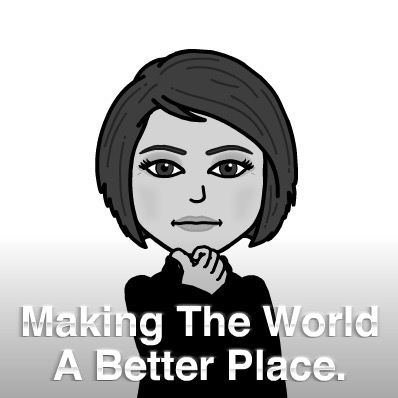After reading an article in the Huffington Post outlining the benefits of seeing either a therapist or life coach and the differences (and similarities) between the two, I realized that much like my personal life, my professional role is rather NonTraditional as well.
I have been involved with theater my entire life. I was born and raised in it and I fell madly in love with it at the ripe age of 11. So much so that I chose to go to college as a theater major. So right there, you can understand that my empathic tendencies run pretty deep…
Much like everything that has ended up having the biggest impact on my life, psychology totally blindsided me and flipped my world on it’s head. My senior year in high school I took a half-semester psychology class (which was all my high school offered at the time), and after just the first class, I was hooked. I bordered on that really obnoxious and really energizing student that teachers both loved and hated – I couldn’t stop talking about how each newly learned principle kept showing up in my actual life, and I also couldn’t stop talking in class period (a problem I often have when I am super passionate about a topic). And after two college transfers and three majors, I settled on a psychology degree from Northeastern University.
I spent three-and-a-half years at Northeastern University as an undergraduate psychology major. I was involved in “psych club” and I was even a peer advisor, helping students figure out how to complete their psychology major requirements to go after the career of their dreams. I wanted to be a counselor, I wanted to help people with problems in living, I wanted to help my peers. And because I am a problem solver by nature, I also really enjoyed studying and researching a problem, especially a psychological one. And even though at one point I was so clear on becoming a clinician, I accepted that it’s ok to change your mind, and I chose to stay at Northeastern and earn my doctorate in psychology.
Now here’s where things get a little nontraditional and where I always feel a strong need to explain myself. I have a PhD in Psychology. It says so right on my degree; I have the dissertation and graduate-student-trauma to prove it. I studied psychology for over 9 years, both as an undergraduate and graduate student. I also taught psychology courses at the college level at Northeastern University as both a teacher’s assistant and as an adjunct professor to the university, namely abnormal psychology.
But I am not a clinical psychologist.
Why?
Because for the five years of my graduate education I focused on researching the problems in living, rather than researching the individuals that had these problems. Plain and simple, I was a mind-scientist. I studied how our thinking can often be biased, how the diagnostic system for mental disorders is flawed, and how parents and adults understand children’s problematic behaviors. In essence, I studied how you and I think about and understand mental health. I was an experimental psychologist studying cognitive psychology with a focus on mental health (which was super awesome to spit out at every. single. conference).
And then, I changed my mind again.
As I neared the end of my doctoral research, I was continually plagued by the notion that my work wasn’t helping enough people (something most research psychologists struggle with, from what I have seen and heard). Our work is important, it’s about how we think, feel, act…but most of the time it’s hidden in some scientific journal the general public never sees. I wasn’t ok with that. I needed a more direct line of help. I wanted to reach people with more immediacy.
And the thing I loved from the very start about psychology involves one of the very basic principles of the human condition – as people, we want to be known and understood. I am a creature of connection. If I have been through something, I want to know others who have too. If I see you struggling with something I know anything about, I want to walk you through some useful steps. Whether talking to you about Pavlov’s dogs, what credits you need to graduate, or what it was like growing up in a divorced & blended family…if I know something about it, my knowledge is only useful to the degree that it can help someone else work through the same or similar circumstances.
So in 2009 when I learned the exact steps it took for me to lose 30 lbs in less than 6 months (something that so many, including myself, struggle with for so long)… I started sharing my experience. And I should add that this was not unsolicited advice. I was approached over and over again about “how I was doing it”, because the changes were…obvious. And because I am a creature of connection, I just started talking. And before I knew it, I had found a way to reach people…I had found my direct line of help.
Wellness was my self-improvement avenue and I knew that it could also be that way for so many others. So I started teaching and preaching whatever I knew, and I started learning whatever I didn’t. Eventually, I was offered a full-time position at a small start-up company focused on research-based nutritional weight-loss. The program focused on both the psychological and behavioral changes that accompany the direct nutritional changes necessary to lose weight. It was like the perfect post-graduate position. I could use my psychology education and expertise to directly help others improve their wellbeing and share my personal experiences along the way. And so I became a wellness educator and a health coach with a strong basis in psychology.
The thing about holding a solution-focused psychological philosophy, is that you rarely interact with only one aspect of a person when working with them. So even over the 3+ years I was a health coach, my strongest connections with clients ran much deeper than weight loss, fitness, and nutrition. We talked about family, friendships, romance. We dealt with stereotypes, self-esteem, and body image. We addressed fear, defeat, and failure. We channeled strength, determination, and success. And together we felt known and understood, because we all had these universal experiences, and we were sharing them together.
And realizing this very nature of the human condition, I acknowledged that wellness is only one component of our connection and that there’s so many more direct lines of help available.
This is the exact reason why I expanded my focus beyond wellness. Yes, sure, I can still help people reach their wellness goals because I know something about it and have gone through those challenges myself (and am a forever student here). But I also specialize in same-sex relationships, children of divorced/blended families, non-biological parenting, adversity as a result of sexual-orienation, familial estrangement/alienation, and living an authentic life…because I have both knowledge and experience in all of these areas as well.
So today I am a hybrid. I am not a licensed psychotherapist or clinician, but I have a strong education and background in psychological theory (they don’t call me a doctor for nothing!). I am not a certified life coach, but I do focus primarily on finding solutions to your problems in the here and now.
And I call myself a relationship advisor. I am not a counselor or licensed clinician. I do not diagnose, treat, train, or teach. Consider a financial advisor – educated and experienced, sharing personal choices as a way to support you and offer their expertise as a way to guide you to improve your financial situation. I do the same…but for your relationship.
I am real and real is rare, but I strive to be authentic in everything I do. I want that for you too. I want you to be unapologetically you, as I am me. And if you think that my authenticity is a light leading you to my direct line of help for your personal challenges, it is. So call me whatever you what, but what I am is what I am, are you what you are…or what?
Dr. Jennelle
Relationship Advisor
Schedule your FREE Relationship Consultation Today!

